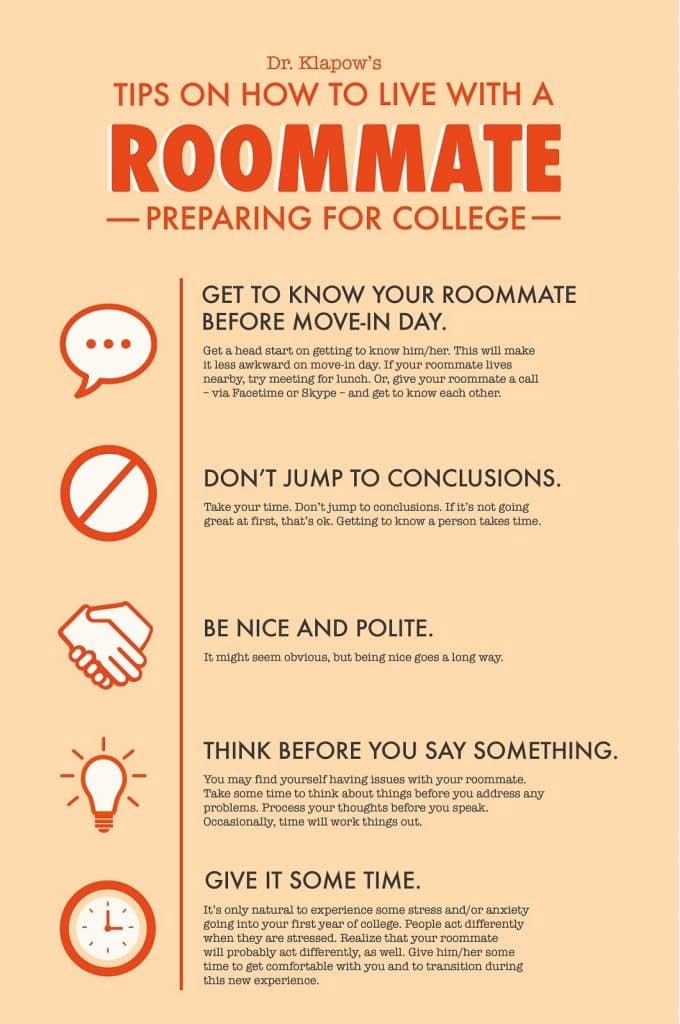Dr. Josh Klapow: Here’s how to deal with a difficult college roommate

Transitioning to college is a major life change, besides learning to live with a new roommate in close quarters. UAB Psychologist Dr. Joshua Klapow advises students to give the roommate relationship some time. There are steps one can take to deal with a difficult roommate and smooth the way. "Your life in the dorm should be comfortable," Klapow said. "A student's interaction outside the classroom has a huge impact on academics." Here, Klapow gives tips on helping college students adapt to a new roommate. (Contributed)
You’re at college, away from home for the first time – and free as a bird.
With freedom comes challenges. For instance, it’s likely that you won’t know your college roommate before you move into the dorm. Unless that person is a friend, you’ll be confronted with living in very close quarters with a virtual stranger. College is an adventure, and living with a new roommate is part of that great unknown.
Dr. Klapow tells you how to smooth out your roommate situation in college from Alabama NewsCenter on Vimeo.
Different universities have varying qualifications about how roommates are placed, including compatibility questions such as your major and favorite pastimes. Universities aren’t randomly putting people together. That results in an artificial placement of people that wouldn’t happen naturally, and the person “on paper” can turn out to be very different from the individual in your mind’s eye.
Joshua Klapow, Ph.D, clinical psychologist and associate professor of Public Health at UAB, said that going off to college is a giant life transition. It’s important to give the new roommate experience some time. The truth is, your roommate is dealing with many of your own issues: He or she may miss home and family, may be worried about fitting in, are concerned about their classes, college schedule or any number of things.

(Alabama NewsCenter Infographic/Charlestan Helton) Source: Dr. Josh Klapow
“There’s a whole lot of anxiety and angst that contributes to dealing with a new roommate,” Klapow said. “It’s important to head off any issues to begin with. You can make it a very bad situation. A student’s interaction outside the classroom has a huge impact on academics.”
If there is time before the school year begins, Klapow recommends reaching out to your roommate early. With today’s technology, it’s easy to do a “get to know” call with your roommate: Use Facetime or Skype if possible. (There are also video conferencing alternatives on Android devices.)
Case in point: “I got a bio on my college roommate the week before I got there,” Klapow said. “But my son got lucky – over the summer, he connected with the person who will be his roommate by using social media.”
Klapow gives new roommates the same advice he gave his son, who is starting freshman year at Washington University in St. Louis in August.
“Be cordial, be polite, be courteous and be friendly, but don’t come on too strong,” he said. “Don’t try to be best friends that first day. Give it some time.”
Similar to a dating relationship, Klapow said, it’s important to pace yourself.
“Everybody needs their space because they’re trying to figure things out,” he said. “If you don’t bond right away, it doesn’t mean you’re doomed. Try not to catastrophize habits.”
Klapow recommends trying not to criticize your roommate’s choice of music, the clothes they wear or their routines. It’s all right to make judgments internally, but it’s best to keep them to yourself. For example, don’t call out your roommate for their snoring.
“You’re welcome to your thoughts,” Klapow said. “But think before you speak. If their habits aren’t highly disruptive, realize you need to give a little. You’re in new surroundings, this is a test for you to cope with the world. As long as these things don’t impact you directly – such as your ability to sleep, eat and study – try not to jump to conclusions.”
There are hundreds of new things to adapt to in your new life, so try not to sweat the small stuff. Remind yourself that everything is new to everybody. Taking a “wait and see” approach can save upset feelings for both of you.
“Realize there’s a lot of adaptation going on both ways,” he said. “Give it some time. If the things your roommate does don’t have a direct bearing on you, it doesn’t matter. You’re not going to see things the same way three months from now.”
Take charge if things just aren’t working out
If, after a reasonable period you question your ability to live with your roommate, it’s a good idea to confide in your parents and/or resident adviser (RA) as a sounding board.

There can be lots of anxiety about dealing with a new roommate as you start college. Pace yourself – allow yourself and the other person time to transition. Don’t try to be best friends on the first day; let the relationship develop naturally. (Contributed)
“Talk with your parents and your RA, in confidence,” he said. “The power of the RA is tremendous. Chatting with the RA about what you’re feeling will help get things off your chest. Don’t talk to other people on the floor about what’s going on because you’re in close quarters.
“You want a positive, peaceful dorm room experience,” he said. “There’s a lot of middle ground in between. Your roommate doesn’t need to be your best friend or your enemy.” The RA can serve as a mediator.
There are some signs that should be seen as red flags that point to a need to terminate the roommate relationship, Klapow said.
“If at any time you’re fearful, or your roommate does things that are morally unacceptable to you or something you’re not comfortable with, or uses hateful language, that’s the time to end the roommate agreement,” he said.





